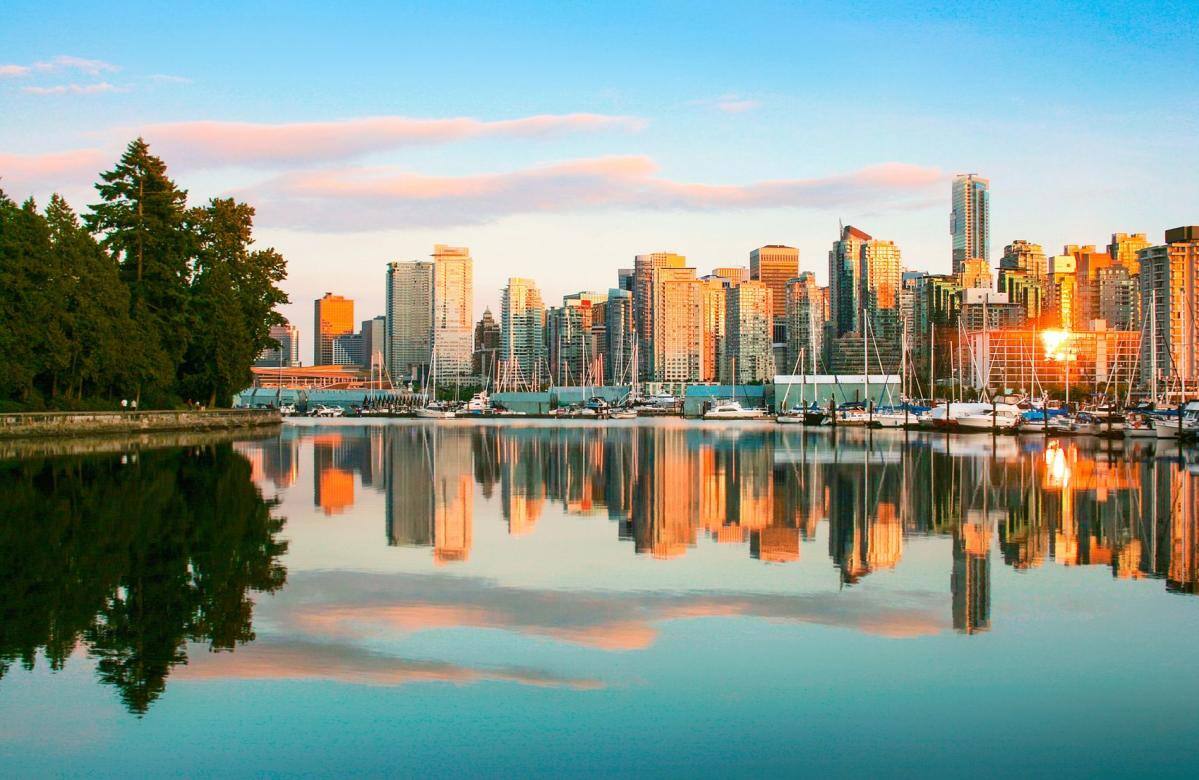Top 10 Cleanest Cities in the World
Published: 25 September 2024
With more than 80% of the world's population living in places with poor air quality, there has never been a greater demand for sustainable and environmentally friendly solutions. However, air quality alone does not define how clean a city is. Clean includes green spaces, effective waste management systems, water quality, and other important environmental considerations. The world's most progressive towns are shifting to renewable energy, reducing waste, and reaping the benefits of sustainable development.

Environmental and Health Impacts of Pollution
Pollution has a huge impact on a city's cleanliness since bad environmental conditions affect both ecosystems and human health. The elements impacting air quality and environmental conditions fluctuate between cities according to local dynamics. For years, several cities have started green initiatives to encourage sustainable transportation and environmentally conscious behaviours, resulting in cleaner ecosystems and healthier populations. Clean cities are more than just visually beautiful; they set the standard for future urban growth by combining economic prosperity with good environmental management.
Most Cleanest Cities
Listed below are 10 of the world’s cleanest cities, each paving the way toward a more sustainable future for our planet.
1. Copenhagen, Denmark
Copenhagen, often regarded as the world's cleanest city, has prioritised sustainability in its urban development. With a population of about 1.99 million, Denmark's capital has established measures that put it at the forefront of worldwide environmental initiatives.
One of Copenhagen's distinguishing traits is its widespread usage of bicycles, with 62% of people commuting by bike, a figure that significantly cuts traffic emissions. The city also excels at clean energy efforts, such as the Holmen project, which will generate 300,000 MWh from wind farms and waste-to-energy conversion. Copenhagen's dedication to decreasing its carbon footprint is demonstrated by its target of neutralising 100% of emissions by 2025.
Copenhagen, known for its use of AI and big data to optimise energy use in buildings and public services, has set a global benchmark for the relationship between technology and conservation efforts.
2. Singapore
Singapore is known for its impeccably clean streets and commitment to sustainability. With a population of over 6 million, Singapore's "Clean and Green" programme, implemented in the 1960s by Prime Minister Lee Kuan Yew, established the groundwork for its cleanliness and environmental standards. This strategy was critical for tackling concerns such as waste management and public health.
Singapore's utilisation of vertical gardens and ecological architecture designs, such as the futuristic "supertrees," demonstrates its commitment to urban green space. Furthermore, its water management system is world-class; the unique NEWater technology recycles wastewater into potable water, demonstrating Singapore's resource efficiency.
The city-state also imposes strict littering penalties, with fines for gum disposal reaching €1,000, to keep the streets clean. Singapore reduces congestion and maintains a highly livable environment by combining effective public transport and urban planning.
3. Calgary, Canada
Calgary consistently ranks among the world's cleanest cities, thanks to its progressive environmental legislation and clean energy initiatives. With nearly 1.4 million citizens, the city takes pride in decreasing air and water pollution while safeguarding its natural resources.
Calgary has adopted waste management systems, recycling approximately 75% of its waste. It also has one of the world's most modern wastewater treatment systems, which purifies 100 million litres of water every day.
Moreover, Calgary supports sustainable travel choices, with an emphasis on public transport and cycling, which minimises carbon emissions despite being an industrial powerhouse. The city's green measures have helped it maintain its status as the cleanest city in North America.
4. Helsinki, Finland
Helsinki, the capital of Finland, is a prime example of how cities can transform through renewable energy and sustainable transport solutions. With a population of over 675,000, it is widely regarded as one of the most desirable cities in the world, thanks to its exceptional quality of life.
A leader in sustainability, Helsinki has pioneered circular economy techniques that prioritise resource efficiency by promoting recycling, reuse, and responsible consumption across the city. Its innovative waste management system stands out, converting waste into energy that powers homes and businesses while drastically reducing landfill use.
The city's commitment to sustainability goes even further with its smart city initiatives, which leverage cutting-edge technology to monitor and optimise energy consumption, air quality, and urban planning. This data-driven approach allows Helsinki to continually enhance its environmental impact and improve residents' quality of life.
In its quest to reduce carbon emissions, Helsinki has pledged to cut traffic-related greenhouse gas emissions by 69% by 2035. The city's public transportation network is a model of efficiency and environmental responsibility, with an ambitious goal to have 30% of its buses running on electricity by 2025.
5. Wellington, New Zealand
Wellington, New Zealand's capital, is well-known for its clean air and environmental efforts, thanks in large part to attempts to safeguard natural resources while minimising pollution.
Wellington has banned plastic bags and actively encourages public transport and sustainable methods such as Ecosystem-based Adaptation (EbA), which focuses on maintaining ecosystems to offset the effects of climate change. The city has some of the world's highest air quality, making it a leader in clean urban living.
6. Zurich, Switzerland
Zurich, with a population of more than 1.4 million, is one of Europe's most environmentally conscious cities. Zurich is noted for its efficient public transport and commitment to recycling and has launched various green efforts to preserve its clean environment.
Zurich's transport system promotes the use of bicycles and public transport, which helps to minimise emissions. Zurich also excels at waste management, with more than 90% of it being recycled or reused.
The city's emphasis on sustainable energy is another important reason for its status as one of the world's cleanest cities. Zurich is increasing its use of renewable energy, with the goal of being carbon neutral within the next few decades.
7. Oslo, Norway
More than Norway's capital, Oslo is also a global leader in sustainability and electric mobility. The city has developed an ambitious "Climate Budget," which aims to reduce carbon emissions by 50% and become carbon neutral by 2050.
Oslo is recognised as the "electric car capital" of the globe, with electric vehicles accounting for 60% of all new vehicle sales. Its public buses use biogas, significantly lowering the city's carbon footprint. Oslo is leading the way in establishing a clean and sustainable urban environment, thanks to effective waste management and a commitment to green building principles.
8. Dubai, United Arab Emirates
Dubai, a city noted for its architectural masterpieces and luxury, has made great progress towards becoming a cleaner, more sustainable city.
The government has installed comprehensive air quality monitoring systems and launched renewable energy projects such as the Mohammed bin Rashid Al Maktoum Solar Park, which is one of the world's largest. Dubai's waste-to-energy plant is an important component of the city's zero-waste policy, and tough emission limits for vehicles and industries are helping to reduce pollution. With its enormous green spaces and continual efforts to improve sustainability, Dubai is providing a model for modern cities worldwide.
9. Auckland, New Zealand
Auckland's beautiful natural landscapes and dedication to environmental preservation make it one of the cleanest cities in the Southern Hemisphere.
The city has adopted renewable energy and waste reduction programmes, and its Ecosystem-based Adaptation (EbA) policy guarantees that Auckland's water resources and green spaces are protected. Auckland's public transport network is also intended to reduce traffic congestion and greenhouse gas emissions, making it an example of sustainable urban living.
10. Adelaide, Australia
Adelaide, the capital of South Australia, is known for its devotion to environmental protection and cleanliness.
The capital is spearheading several projects to become one of the world's first carbon-neutral cities. Adelaide's environmental performance has been greatly improved by sustainable water management, circular economy methods, and urban greening programmes. The city also prioritises biodiversity, with initiatives aimed at preserving local ecosystems and promoting sustainable urban development.
As urbanisation increases, the need for cleaner cities grows more urgent than ever. Around the world, a few cities stand out for their dedication to cleanliness, sustainability, and innovative urban development. These cities have not only reduced pollution, but also created settings in which people and visitors are encouraged to prosper, thanks to stringent environmental policies, the adoption of sustainable practices, and the incorporation of green technology.



